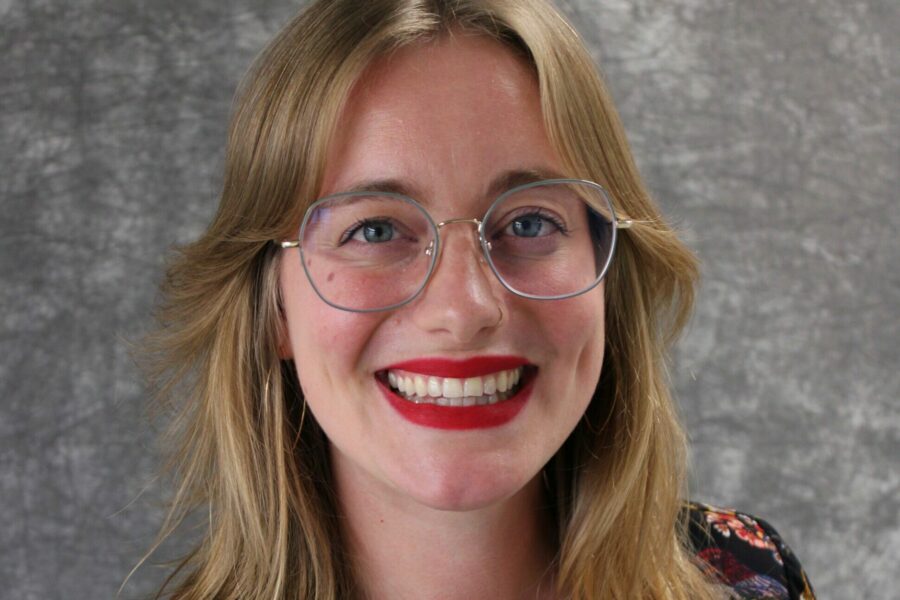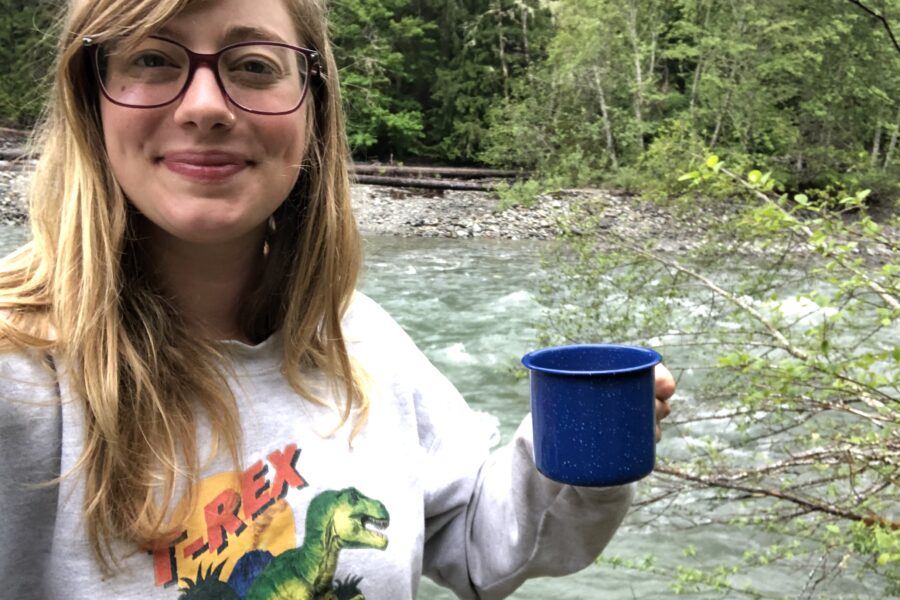
Which program did you participate in and when?
Two semesters in the online accelerated non-thesis Master’s in GIS and Cartography and two semesters in the in person version of the same. January 2022 – May 2023.
What is your current job? (Or future job?)
GIS Specialist with the Center for Health Disparities Research
Could you tell us a little bit about your education and career path?
My educational and professional journey has had a lot of turns. I started college when I was 22 at a small community college. There I immersed myself in math and geology classes. When it came time to transfer, I went briefly to a technical college for Geomatics Engineering Technology. I took classes in AutoCAD and surveying fundamentals. Eventually I ended up at a 4-year university where I got my degree in GIS and Disaster Risk Reduction.
During school I worked in the restaurant industry, lead volunteer groups in environmental restoration of city parks, and worked for a city on community flooding education. After I graduated, I worked for a mid-size school district in health and safety. This was a very dynamic position where I did everything from work with families on their walk/bike routes to school and writing grants to fund bicycle learning equipment to running vaccination and testing clinics at schools during the pandemic.
Deep in pandemic-related work burnout, I decided to change everything and return to school at UW’s GISPP. I wanted to redirect my career and build my skills as a geographic communicator.
In what ways did your experience with GISPP prepare you for and/or enhance your career?
GISPP expanded what I could offer for cartographic visualizations and increased my conversancy in different types of graphics and graphic programs.
What advice would you give current students?
An accelerated program can move quickly! Do not get caught up in the fast pace. Take moments to breathe and choose projects that truly interest you, rather than just fit the assignment. Try new things and make friends. What you learn from peer friends will expand class material. Lastly, look for student job opportunities that can improve your skills while you study. These direct applications of GIS and cartography are very impactful and can lead to full time positions after graduating.
Favorite memory of GISPP?
The wonderful friends I made and being a TA for Introduction to Cartography. I learned more from my students and from teaching the material than in any one class.

Is there anything else you’d like to share with program staff or prospective students about your experience?
I cannot stress enough how much my peer connections expanded what I could learn in the program. People interested in learning GIS and Cartography have incredibly varied backgrounds, interests, and skills. Working on your independent project side by side with peers will make you grow so much more since you will have an opportunity to both teach and learn. Do not be afraid of informal peer critique! It’s incredibly helpful, even when you ignore their opinions.
You do not need to go to grad school. Graduate school is fun and can open new doors, but it is a big investment of time and money. Before choosing to continue school, consider all your options. Write down the specific topics you want to learn or skills you want to gain and ask direct questions of the program or alumni to ensure that what you want is what the program offers. Your graduate experience should work for you, not the other way around.